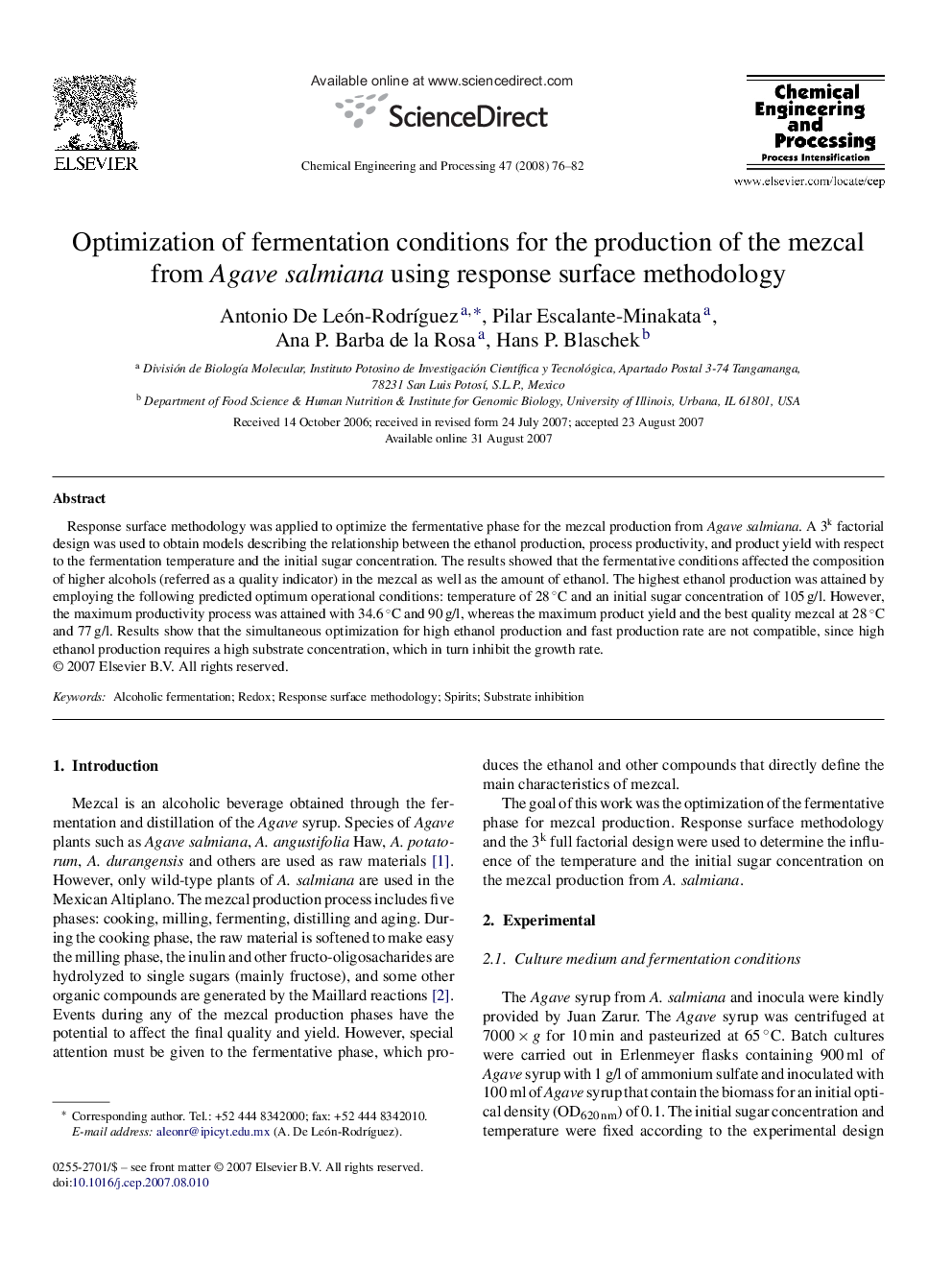| Article ID | Journal | Published Year | Pages | File Type |
|---|---|---|---|---|
| 688194 | Chemical Engineering and Processing: Process Intensification | 2008 | 7 Pages |
Response surface methodology was applied to optimize the fermentative phase for the mezcal production from Agave salmiana. A 3k factorial design was used to obtain models describing the relationship between the ethanol production, process productivity, and product yield with respect to the fermentation temperature and the initial sugar concentration. The results showed that the fermentative conditions affected the composition of higher alcohols (referred as a quality indicator) in the mezcal as well as the amount of ethanol. The highest ethanol production was attained by employing the following predicted optimum operational conditions: temperature of 28 °C and an initial sugar concentration of 105 g/l. However, the maximum productivity process was attained with 34.6 °C and 90 g/l, whereas the maximum product yield and the best quality mezcal at 28 °C and 77 g/l. Results show that the simultaneous optimization for high ethanol production and fast production rate are not compatible, since high ethanol production requires a high substrate concentration, which in turn inhibit the growth rate.
